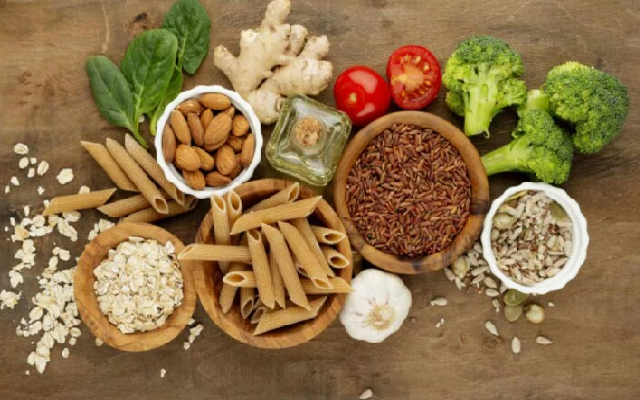Fiber, an indigestible type of carbohydrate, boasts numerous health benefits, including aiding weight loss, regulating blood sugar levels, and promoting gut health. If you’re grappling with issues like constipation or diarrhea, increasing your fiber intake might be recommended to alleviate symptoms. However, there are potential drawbacks to a high-fiber diet. Here’s a breakdown of the key points:
What is Fiber?
Fiber falls under the carbohydrate macronutrient category and is classified as a polysaccharide derived from plants, according to dietitian Leena Martin.
There are two main types of fiber:
1. Insoluble fiber, found in plant structural components like vegetable and fruit skins, adds bulk to stool and helps prevent constipation.
2. Soluble fiber, present in foods like beans, oatmeal, and citrus fruits, absorbs water in the digestive system, forming a gel-like substance that aids in lowering cholesterol levels.
The Importance of Fiber:
Despite not providing energy, fiber plays crucial roles in bodily functions, such as:
– Facilitating waste elimination, thus preventing constipation and potentially reducing the risk of colon cancer.
– Helping to maintain stable blood sugar levels.
– Binding to bile acids, which reduces fat and cholesterol absorption.
– Contributing to a feeling of fullness, assisting in weight management.
– Balancing intestinal pH and promoting the production of short-chain fatty acids, benefiting gut health.
Side Effects of Excessive Fiber Intake:
While the recommended Daily Value for fiber for adults is 28 grams per day, exceeding this amount can lead to various health issues:
1. Anemia: Excessive fiber consumption can hinder iron absorption, potentially leading to anemia characterized by fatigue and weakness.
2. Osteoporosis: High fiber intake may interfere with calcium absorption, increasing the risk of brittle bones and osteoporosis.
3. Abdominal Bloating: Sudden increases in fiber intake can cause gas and bloating as undigested fiber is fermented by gut bacteria.
4. Mineral Deficiency: Overconsumption of fiber can impede the absorption of essential minerals like iron, calcium, and zinc.
5. Anal Fissure: Hard stools resulting from harsh, indigestible fiber and inadequate hydration can cause anal fissures, small tears in the anus lining.
6. Constipation: Insufficient fluid intake alongside high fiber consumption can lead to hard stools and constipation.
7. Diarrhea: Excessive intake of fiber-rich foods may cause indigestion and loose stools, resulting in an upset stomach.
Managing Fiber Intake:
If you experience these side effects, consider increasing fluid intake, gradually reducing fiber consumption, and incorporating physical activity into your routine to alleviate symptoms.




